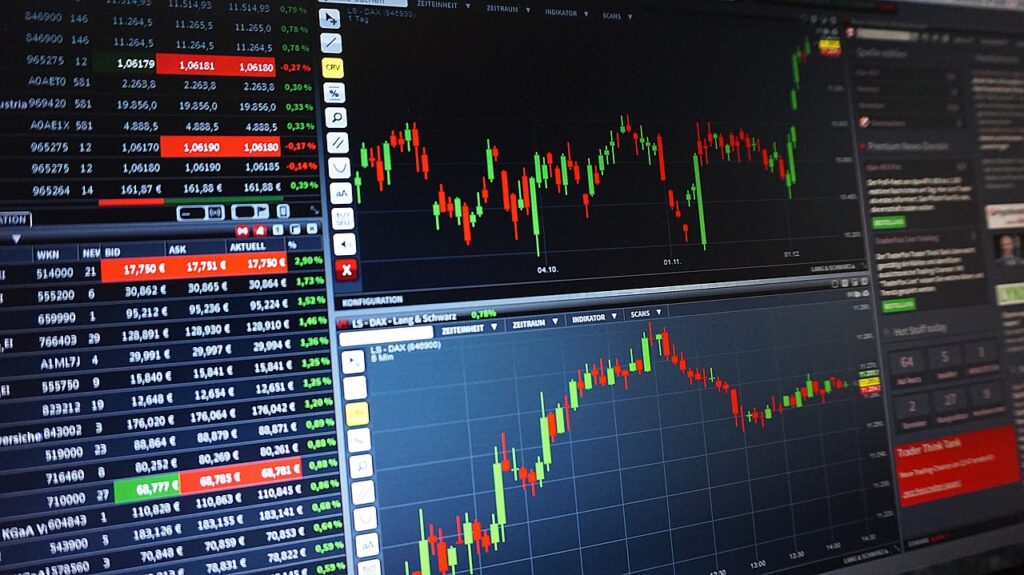Introduction
Elections play a significant role in shaping a country’s economic policies, business environment, and investor sentiment. The stock market, being highly sensitive to political and economic changes, often experiences volatility before, during, and after elections. Investors closely monitor elections as they influence fiscal policies, interest rates, trade policies, and corporate regulations. This blog explores how elections impact the stock market and provides insights for investors to navigate election cycles effectively.
The Relationship Between Elections and the Stock Market
1. Market Volatility Increases
Elections bring uncertainty, and the stock market dislikes uncertainty. Investors become cautious, leading to fluctuations in stock prices. Historical data shows that market volatility tends to spike in the months leading up to an election.
For historical stock market data, visit the New York Stock Exchange (NYSE).
2. Sector-Wise Impact
Different sectors react differently depending on the expected policies of the ruling party. For example:
- Energy sector: Policies favoring renewable energy can impact oil and gas stocks.
- Healthcare sector: Changes in healthcare regulations affect pharmaceutical and insurance companies.
- Technology sector: Tax reforms and data privacy laws influence tech stocks.
To track market trends, check the National Stock Exchange of India (NSE).
3. Impact on Currency and Bonds
Elections also influence the currency and bond markets. If a pro-business government is expected to come into power, the national currency may strengthen, whereas uncertainties can lead to depreciation. Similarly, bond yields fluctuate based on expected government spending and debt policies.
For updates on bond markets, refer to the London Stock Exchange (LSE).
Historical Trends: Stock Market Performance During Elections
1. US Presidential Elections
- Historically, the S&P 500 index tends to perform well in election years, especially when an incumbent president wins.
- Market crashes have often been associated with political instability and contested elections.
2. Indian General Elections
- The Nifty 50 and Sensex indices experience high volatility during election periods.
- Bullish trends are seen when a stable government is elected with a clear majority.
- Below is a table showcasing how the Indian stock market reacted to recent elections:
| Year | Election Outcome | Nifty 50 Movement | Sensex Movement |
|---|---|---|---|
| 2019 | BJP Victory (Stable Government) | +3.95% on results day | +4.00% on results day |
| 2024 | BJP-led Coalition (Less Certainty) | -1.2% on results day | -1.5% on results day |
3. UK Elections and Brexit Impact
- The FTSE 100 index reacts sharply to political changes, especially after Brexit.
- Investors look at economic policies rather than party politics while making investment decisions.
How Investors Can Navigate Election-Driven Market Swings
1. Diversify Your Portfolio
Diversification helps mitigate risks. Invest across different asset classes, such as equities, bonds, and commodities, to balance potential losses.
2. Avoid Panic Selling
Short-term volatility is common during elections. Avoid making impulsive decisions based on market noise and speculation.
3. Focus on Fundamentals
Instead of reacting to political changes, focus on company fundamentals, earnings, and long-term growth prospects.
4. Monitor Policy Announcements
Track policy changes related to taxation, infrastructure, and trade regulations that can impact specific industries.
5. Use Stop-Loss Strategies
Setting stop-loss limits can protect your investments from excessive downside risks during high volatility periods.
Post-Election Market Behavior: What to Expect
1. Immediate Market Reaction
Stock markets react quickly to election outcomes. A clear victory often leads to a short-term rally, whereas a hung parliament or uncertain results may cause a decline.
2. Policy Implementation Phase
Once the government takes office, the actual implementation of policies affects the stock market more than pre-election promises.
3. Long-Term Market Trends
Stock markets stabilize once economic policies are in place. The real impact of elections is seen in GDP growth, employment rates, and corporate profitability over time.
Conclusion
Elections are a crucial factor affecting stock market behavior. While they bring short-term volatility, long-term investors should stay focused on fundamental economic indicators rather than political noise. By adopting strategic investment practices, investors can minimize risks and maximize returns during election cycles.



